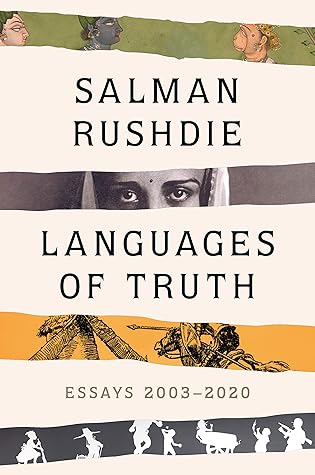More on this book
Community
Kindle Notes & Highlights
Calvino himself collected and perhaps partially invented many Italian wonder tales in his classic work Italian Folktales, and all his work was steeped in the language of the Italian fable.
Dream on paper. And if it turns out like Twilight or The Hunger Games, tear it up, and try to have a better dream.
Perhaps we, who are language animals, possess a song and story instinct; we need and move toward stories and songs not because we are taught to do so but because it is in our nature to need them.
We know, when we hear these tales, that even though they are “unreal,” because carpets do not fly and witches in gingerbread houses do not exist, they are also “real,” because they are about real things: love, hatred, fear, power, bravery, cowardice, death. They simply arrive at the real by a different route.
art alone can make possible the transaction between love and death that is at the center of all human life.
We live in an age of invented, alternate worlds. Tolkien’s Middle-earth, Rowling’s Hogwarts, the dystopic universes of the Hunger Games, the places where vampires and zombies prowl, these places are having their day. Yet in spite of the vogue for straightforward fantasy fiction, in the finest of literature’s fictional microcosms there is more truth than fantasy.
I also hoped that my own track record, the things I’d written, the work I’d done, the person I had been, would be my best defense against the demonization of my character and motives that was taking place. But those were thoughts from before the time in which we all became too frightened of religion in general and one particular religion in particular—religion redefined as the capacity of religionists to commit earthly violence in the name of their unearthly sky god.
I took pride in the fact that Pakistani readers used Midnight’s Children to “enter” India, and Indian readers used Shame to “enter” Pakistan, and I have always felt a close affinity for those writers, like the great Urdu short-story writer S. H. Manto, who had one foot in Karachi and the other in Bombay.
Migration is an old subject in America, but now it’s the world’s subject too. At the time of the India–Pakistan Partition, that was the greatest mass migration in human history, and since then there have been others to rival it. For good or ill this is the age of the migrant, the time in human history in which more people than ever before have ended up in places in which they did not begin, driven by economic necessity, political turmoil, or simply the lure of the big city’s bright lights.
Self-regard has never been so well regarded. Self-exposure has never been so popular, and the more self that is exposed the better. Amid such promiscuity of revelation, how can art compete? How can truth fail to be stranger than fiction?
the question at the heart of the entire subject of adaptation, the activity: that is to say, the question of essence. “Poetry is what gets lost in translation,” said Robert Frost, but Joseph Brodsky retorted, “Poetry is what is gained in translation,” and the battle lines could not be more clearly drawn than that.
The question of essences remains at the heart of the adaptive act; how to make a second version of a first thing, of a book or film or poem or vegetable, or of yourself, that is successfully its own new thing and yet carries with it the essence, the spirit, the soul of the first thing, the thing that you yourself, or your book or poem or film or your mango or lime, originally were.
when Barbara Jefford as Molly Bloom lounges and rolls promiscuously upon her marital bed and delivers in voiceover the grandest soliloquy in any novel, and as yes she says yes she says yes, the world of Joyce’s tongue comes fully alive at last.
Paranoia, in Pynchon, is presented as a form of higher sanity: not delusion but perception. His paranoiacs are people who strive to see through what Hinduism calls maya, the veil of illusion that prevents human beings from perceiving reality as it truly is.
when he took his stand on the draft, refusing to go to ’Nam, sacrificing his title, risking jail, putting it all on the line for a principle, he became, well, awesome. In those days the word still meant what it was supposed to mean, “inspiring great admiration/awe,” and Ali did that.
This is the laughter of paradox, and without it literature, and life, would be grievously diminished; indeed, some critics have said that the connection between paradox and poetry is so intimate that they are the same thing.
we live in an age in which we are urged to define ourselves more and more narrowly, to crush our own multidimensionality into the straitjacket of a one-dimensional national, ethnic, tribal, or religious identity. This, I have come to think, may be the evil from which flow all the other evils of our time.
Fiction is precisely that place where things are both so and not so, where worlds exist in which we can profoundly believe while also knowing that they do not, have not, and will never exist. And in our age of oversimplification, this beautiful complication has never been more important.


